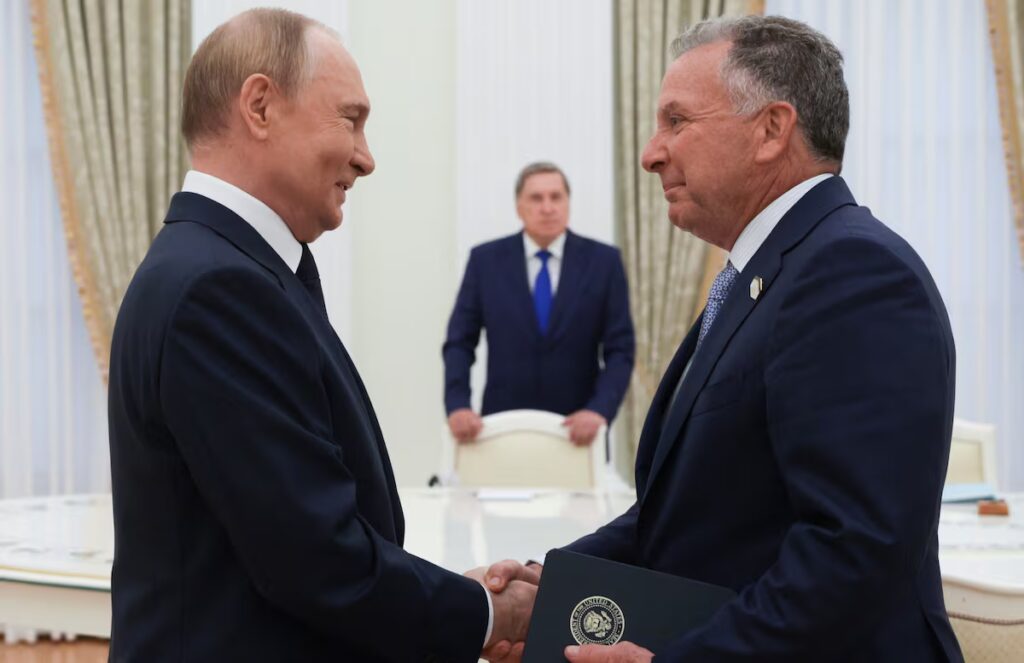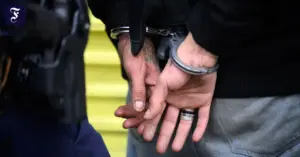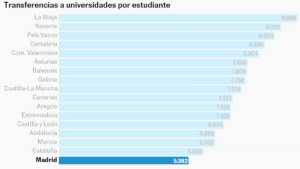
The White House special envoy, Steve Witkoff, has been the point man within the Donald Trump administration for relations with Russia for months. The real estate entrepreneur and, before last January, an absolute layman when it comes to diplomacy, traveled to Moscow several times to meet President Vladimir Putin and developed important contacts with key men in the Kremlin. The recording of an October 14 conversation obtained by the Bloomberg agency, in which he talks to Putin’s advisor Yuri Ushakov, reveals how comfortable the presidential representative feels in talking with enemy theorists and in taking on their points of view on the war in Ukraine: he advises his interlocutor on how to best attract the Republican’s attention and suggests organizing a conversation between the two leaders immediately before the visit to the White House that the Ukrainian Volodymyr Zelenskyj had planned to request on October 17 Long-range Tomahawk missiles.
The leak to the agency coincides with Trump’s announcement that his envoy will travel to Moscow next week to meet Putin again and try to reach an agreement on the new peace plan for the war in Ukraine. The transcript offers insight into Witkoff’s negotiating methods and how the original 28-point plan, leaked last week and disproportionately favorable to Moscow, could have come to fruition.
The conversation occurred when the Trump administration was still euphoric over what it saw as a huge diplomatic triumph, the Gaza ceasefire deal brokered by Witkoff and the president’s son-in-law, Jared Kuchner. In the transcript of the phone conversation, which lasted just over five minutes, the American envoy suggests that Ushakov, Putin’s top foreign policy advisor, collaborate on a Middle East-like plan for the conflict in Ukraine. And he proposes that the Russian president tell Trump about it: “To tell him: you know, Steve and Yuri have faced a very similar plan (to the one in Gaza) and it could be something that can move things, something that we would be open to.”
Witkoff, who declares to his interlocutor his “deepest respect” for Putin, then advises Ushakov on the best way for the Russian leader to attract the attention of the Americans. Among his recommendations he mentions that the Russian largely praises Trump’s role in peace in Gaza and his stature as a great world peacemaker. “It’s going to be a big call from there on,” he says. He also emphasized to the senior Russian official the appropriateness of this conversation before Zelensky’s visit, in which the Ukrainian would ask Washington to send missiles to be able to attack targets inside Russia and have more ability to apply pressure in the negotiations.
“Zelensky is coming to the White House this Friday,” Witkoff says in the transcript. “I’ll go because they want me to be there, but I think, if possible, we’ll have a phone call with your boss before that meeting.”
Putin, in fact, ended up beating the Ukrainian in 24 hours. After that call, Trump announced a summit with the Russians in Budapest, which never took place. And he categorically denied the bullets to Ukraine, despite having shown himself willing to sell them in the previous days. In a summary of the conversation between the American and the Russian, Ushakov confirmed that his leader praised the republican for his contribution to peace in the Middle East. And he warned that authorizing the Tomahawks would mean an escalation of the war that would damage bilateral relations.
When questioned about the content of the leaked conversation, the American president defended his envoy and personal friend. While admitting that he did not have access to the transcript, he assured that these types of recommendations and comments are “common” in a negotiation. “This is what a middleman does,” he said.
In the transcript of the phone call with Ushakov published by Bloomberg, Witkoff alludes to some points of the peace plan which, after its existence became known, sparked protests and consternation from Kiev, European allies and American lawmakers from both parties who support the Ukrainian cause. The proposal, amended in negotiations Sunday in Geneva with Zelensky’s representatives, originally called for Ukraine to give up territory it controls in Donetsk province, radically reducing its armed forces and forever ruling out NATO membership.
“Having said you and me, I already know what it will take to conclude a peace agreement: Donetsk and maybe some exchange of territories somewhere. But instead of saying it like that, let’s present it in a more confident way, because I think we will reach an agreement there. And I think, Yuri, that the president will give me a lot of space and freedom to close it,” he says.
He had previously told his interlocutor: “I told the president that the Russian Federation has always wanted a peace agreement. This is what I think. I told the president that I am convinced of this.”
Ushakov is open to suggestions from the American representative. “Very good, my friend. I think our leaders can deal with exactly that. Hey, Steve, I agree with you that (Putin) will congratulate him, say that Trump is a true man of peace and so and so. This is what he will say.”
Following that conversation, Witkoff met in late October in Miami with Kirill Dimitriev, another Kremlin adviser, in a meeting where the original peace plan was apparently worked out. On October 29, in another recorded conversation obtained by Bloomberg, the two senior Russian officials discussed what demands they should include in a peace proposal. Ushakov recommends: “maxims”.





